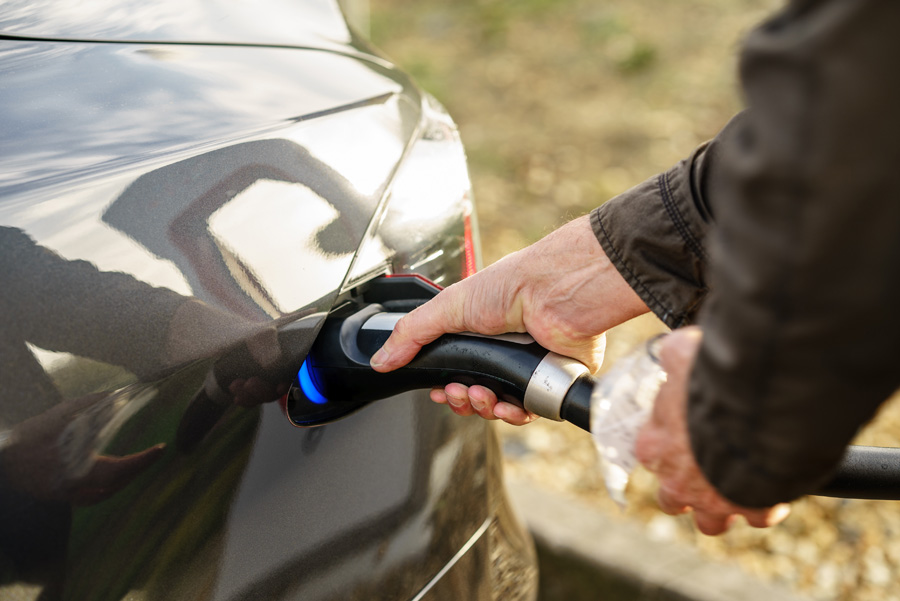S h a r e
Electric Vehicle Charging Times


Posted by
Kevin Blackmore
August 2023
The time it takes to charge an electric vehicle can vary greatly depending on the vehicle and the charging method used. Generally speaking, charging can take from as little as 20 minutes to more than 24 hours.
The time required to charge an electric car depends on several factors:
- Battery size
- Type of charger (domestic, rapid charger, etc.)
- Remaining charge
An average electric vehicle with a 60kWh electric battery takes approximately 8 hours to charge from empty using a 7kW charge point.
Most manufacturers advise against constantly charging your electric vehicle to full as this process can reduce the effectiveness of the battery over time. And very few will regularly let their car go down to only a few percent, just as many won’t push the fuel remaining in a petrol tank when the orange light comes on.
Example charging times
Domestic charges typically offer 3.7kWh and 7kWh output, while 22kWh domestic chargers are very rare due to their three-phase technology and high install cost, but can be found more commonly in public car parks or workplaces.
Rapid charging offers the fastest way of charging your electric vehicle and offers from 60 to 400 miles range in around 30 minutes, depending on car and charger.
Irrespective of the charge type, all cars can use compatible equipment. Put simply, if the plug fits, it will charge. However, the actual charge time is dictated by the lowest common denominator between the vehicle and charger. A car that can charge at 7kW can be plugged into a 22kW charger, but will draw a maximum of 7 kW. Equally, the same car that can take 7kW can be plugged into a 3.7kW point, but will draw the maximum the unit can provide – 3.7kW in an hour. In general, most pure-electric cars can use rapid charging as well as slow and fast charging, and plug-in hybrid electric vehicles are limited to slow or fast charging.
| Vehicle | Battery Capacity (Net) | Range | Slow Charge (3.7kW) | Fast Charge (7kW) | Rapid Charge (50kW) | Ultra-Rapid Charge (350kW) |
| Mini Electric | 28.9kWh | 145 miles | 8 hours | 4 hours | 25 mins | 25 mins (50kW max) |
| Peugeot e-208 | 46.3kWh | 217 miles | 12.5 hours | 6.5 hours | 40 mins | 20 mins (100kW max) |
| Porsche Taycan | 83.7kWh | 315 miles | 23 hours | 12 hours | 1:10 mins | 18 mins (270kW max) |
| Toyota RAV4 PHEV | 16.3kWh | 46 miles (electric only) | 4.5 hours | 2.5 hours | N/A | N/A |
Charge times are indicative only, with figures rounded for clarity. Slow and Fast Charge times given for 0-100% charge, Rapid and Ultra-Rapid figures given for a 10-80% charge.
Charge per hour
The range you get per charge depends on your vehicle and other factors such as temperature and driving style. If you’re driving in winter, your range will decrease owing to the impact temperature has on battery technology. In addition, colder temperatures can increase charging time.
Smaller, efficient electric vehicles will be able to go further per hour of charge than a larger, less efficient electric vehicle – even if the larger model has a greater battery capacity, and therefore range. For example, a small electric city car could get approximately 30 miles of range per hour using a domestic 7kW charger, while a large SUV would only get 20 miles.
The primary factors that affect charging speed are:
- Size of battery
- Current charge remaining
- Maximum charging rate of vehicle
- Maximum charging rate of charge point

